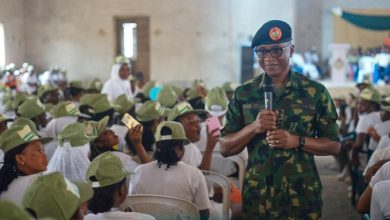Tinubu appoints Abdullahi Ango as FCT secretary for youth development secretariat

President Bola Tinubu has approved the appointment of Abdullahi Ango as the mandate secretary for the newly created youth development secretariat in the federal capital territory administration (FCTA).
A statement by Anthony Ogunleye, the director of press in the office of the FCT minister, said the strategic appointment marks a significant milestone in the administration’s ongoing efforts to prioritise youth development and empowerment in the nation’s capital.
Ogunleye said the secretariat will serve as a robust administrative structure to coordinate youth related matters in the FCT.
He added that it would serve as a veritable platform for the implementation of youth policies and programmes as well as training for skill acquisition, entrepreneurship, and leadership.
“Mr Abullahi Ango brings a wealth of experience and a deep commitment to youth advocacy to this vital role. His extensive background in public administration and his previous contributions to youth empowerment initiatives make him an ideal choice to lead this new Secretariat,” the statement reads.
“Amongst positions held in relation to his new appointment, include the following: FCT Chairman of the National Youth Council of Nigeria, from 2018 till date; member, Presidential Grassroots Independent Campaign Council; Director, Directorate of Youth and Mobilization, FCT Senatorial Elections; Publicity Secretary, Arewa Youths for Tinubu/Shettima; and member, FCT Universal Basic Education Board (2023).
“Mr Abdullahi Ango hails from Kuje in the FCT and holds a BSc degree in International Studies from ABU Zaria, a master’s degree in international relations from the Nasarawa State University and currently pursuing a Doctorate Degree in Peace and Conflict Studies from Nasarawa State University.”





